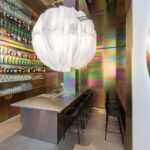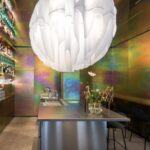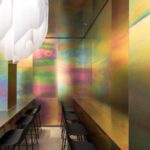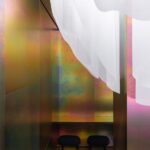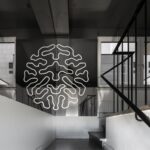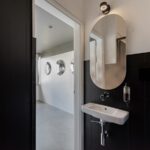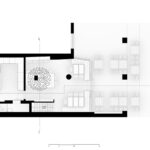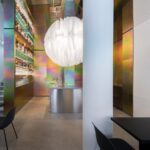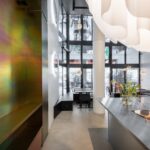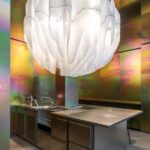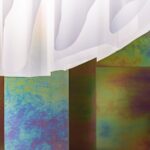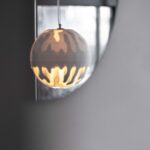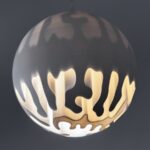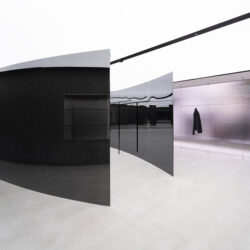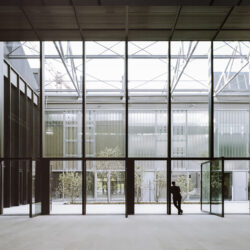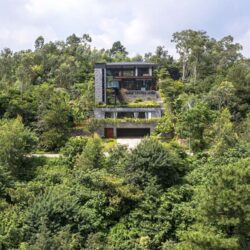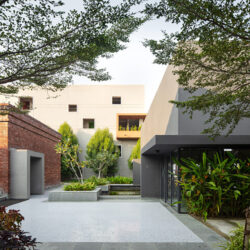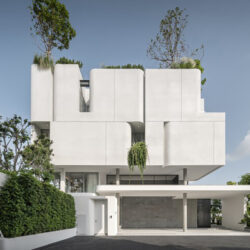Introduction
Cœur Tagesbar, designed by Martino Hutz Architecture, is a testament to innovative restaurant and bar interiors. Situated in Munich, Germany, this 62 m² space defies its small, complex, and cramped layout through a design concept inspired by biological phenomena.
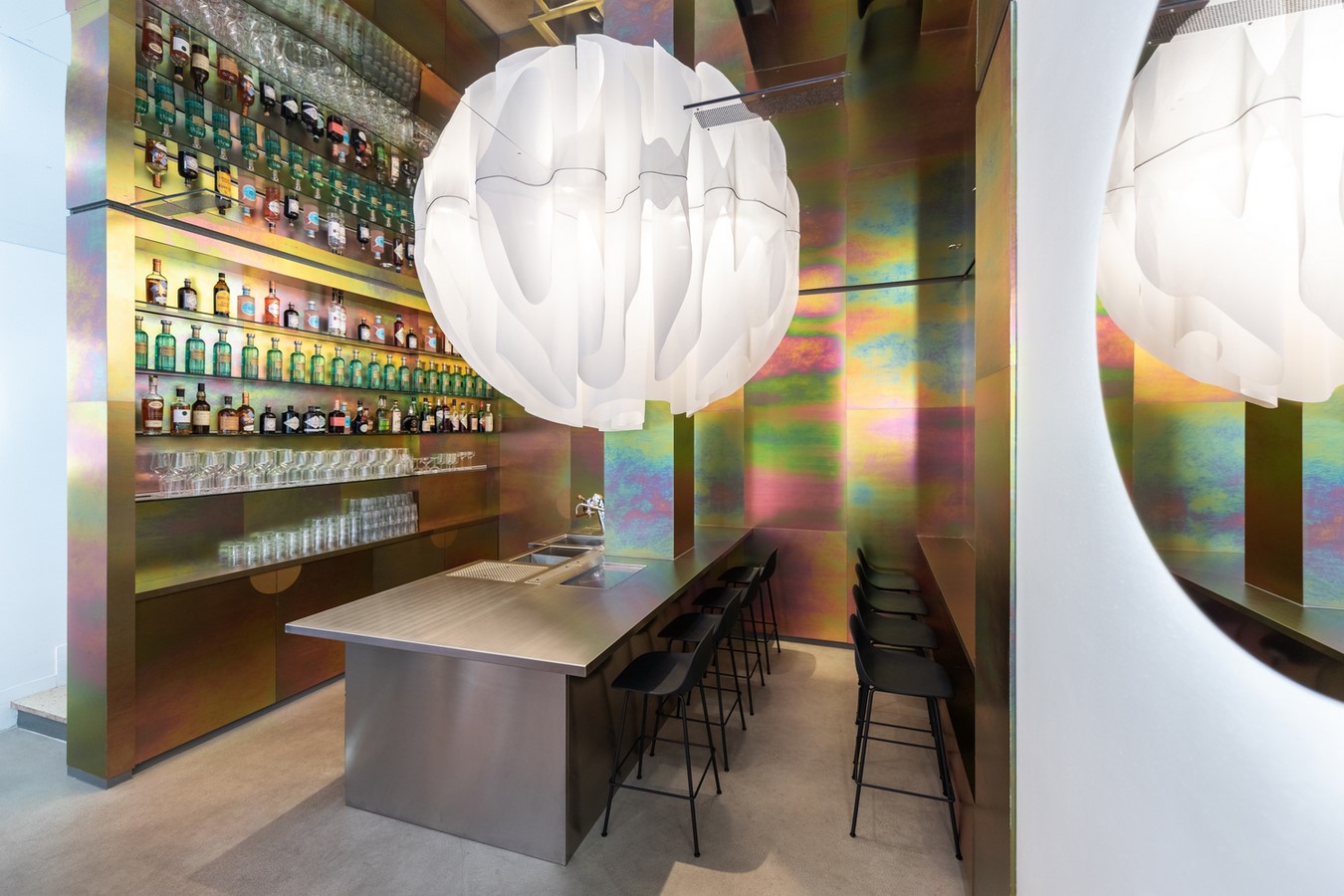
Concept: Differential Growth
The design concept for Cœur Tagesbar revolves around the idea of differential growth, inspired by natural occurrences. This mathematical principle is utilized to optimize the use of limited space, both conceptually and visually, resulting in a unique and dynamic environment.
Utilizing Parametric Software
Parametric software is employed to simulate and model the growth evolution, ensuring a clear mathematical system guides the design process. Random patterns and vivid color variations are integrated into the interior cladding, creating a visually striking space that maximizes the use of available area.
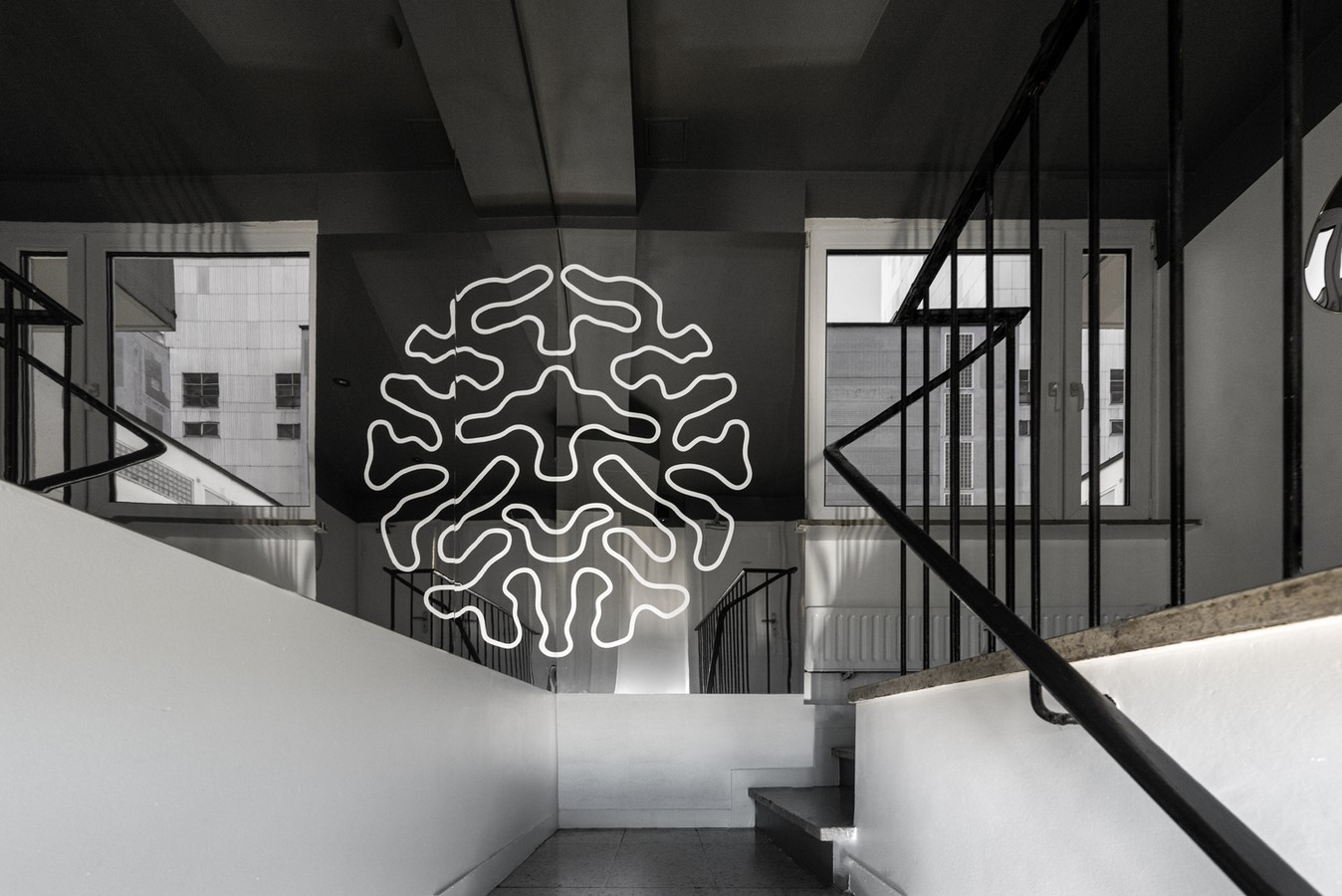
Architectural Features
The ground floor of Cœur Tagesbar is divided into three distinct zones: a covered outdoor terrace, a dining area by the façade, and a sociable open bar. Spatial separation is achieved between interior zones, enhancing the unique ambiance of each space. Mirrored surfaces and artifacts expand the compact footprint visually, creating endless variations of views and interactions.
The Central Piece: Light Installation
The centerpiece of the design is a hemispherical light installation placed above the open bar. This installation, surrounded by chromate steel panels, creates the illusion of a room with double height. Custom-made pendant lights and a specially cut fabric contribute to the immersive lighting experience, enhancing the overall atmosphere of the space.
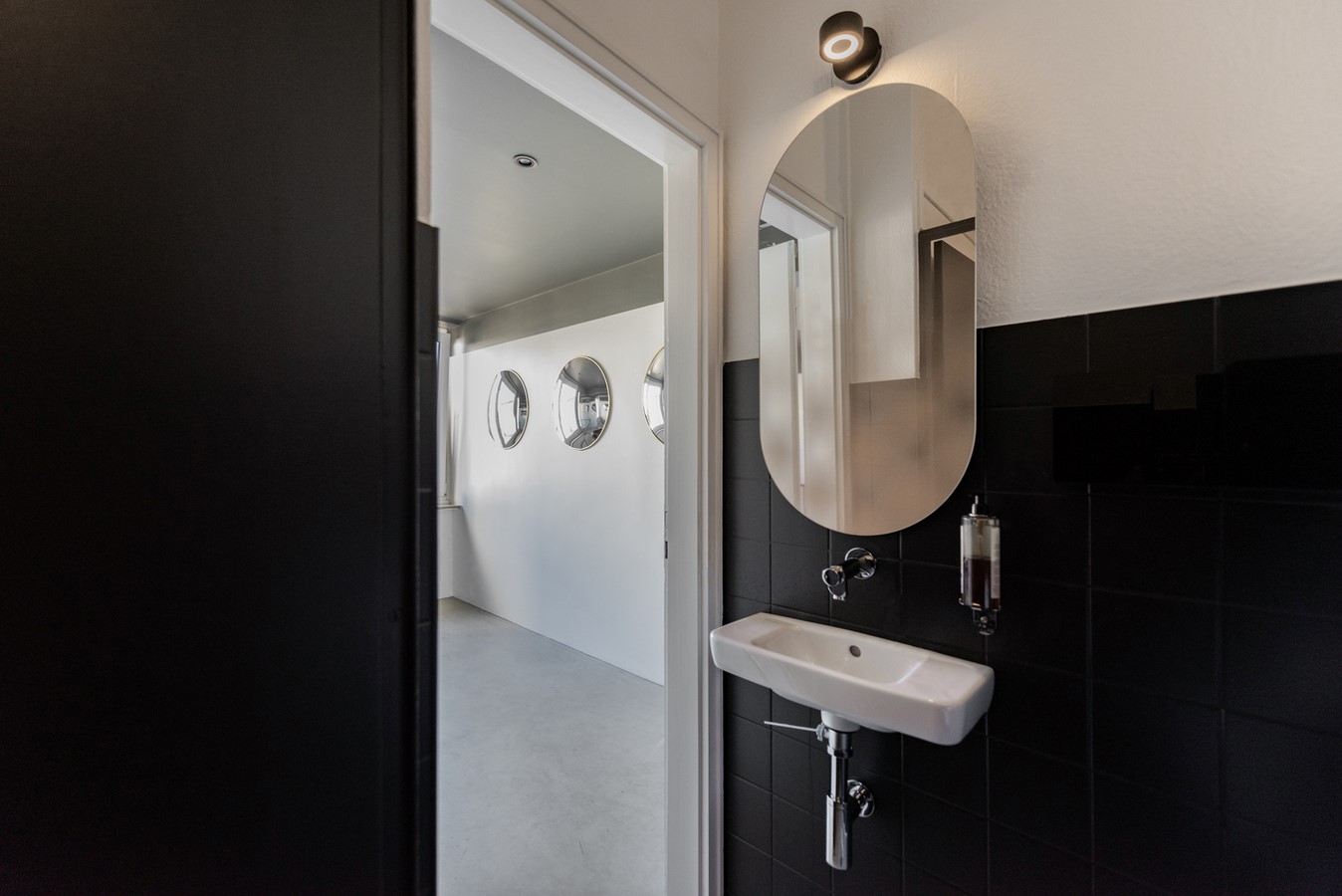
Fluid Interaction
The longitudinal placement of the counter abolishes the boundary between guests and staff, fostering fluid interaction. Custom-designed pendant lights further reinforce the language of growth patterns, creating a cohesive design language throughout the space.
Day and Night Atmosphere
The atmosphere at Cœur Tagesbar evolves throughout the day, transitioning from a welcoming and relaxed environment during the day to a mysterious and intimate ambiance at night. The design successfully transforms a small, complex space into a dynamic and multifaceted destination.
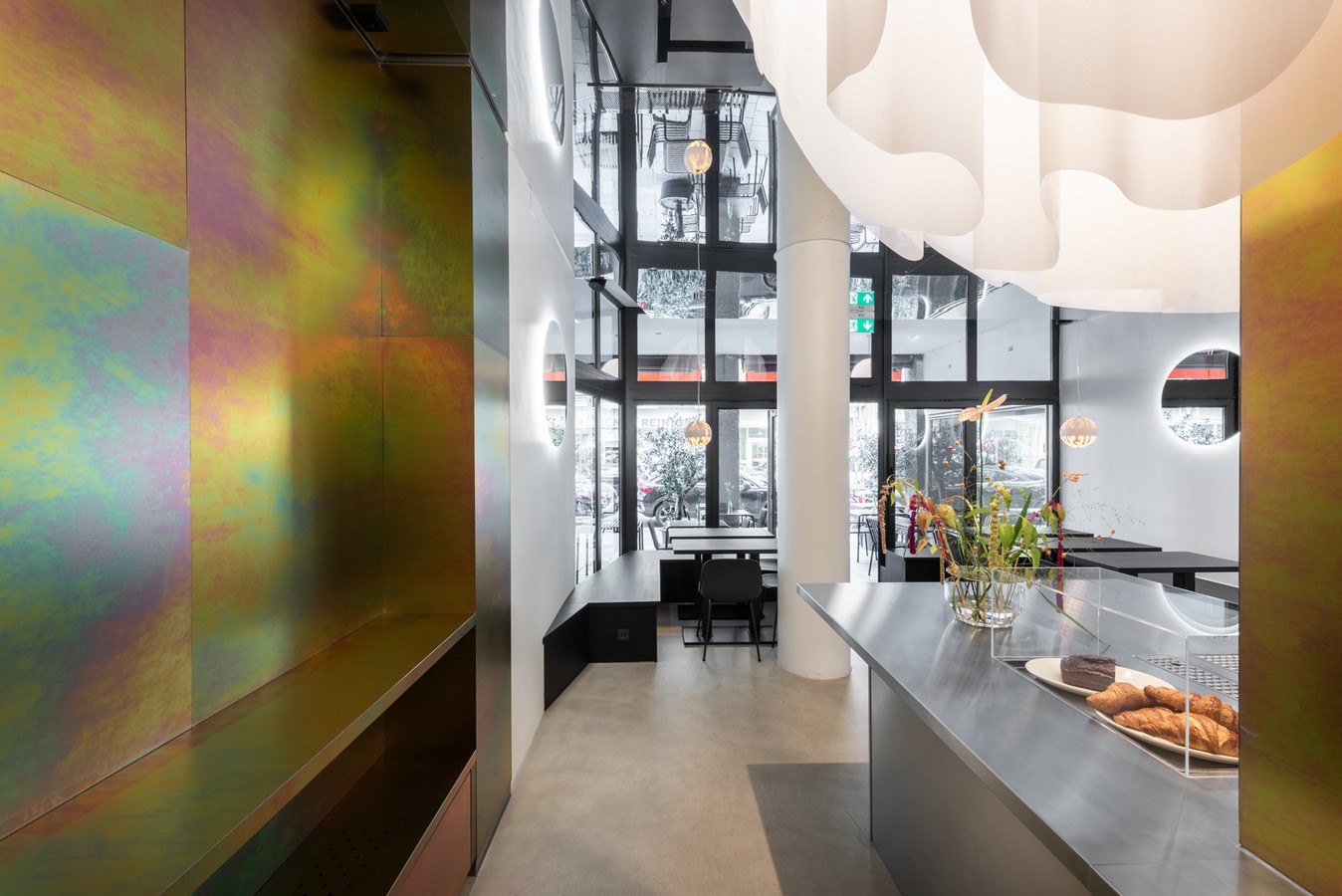
Conclusion
Cœur Tagesbar in Munich, Germany, exemplifies the power of innovative design concepts in transforming limited spaces into vibrant and functional environments. Through the utilization of differential growth and parametric design, Martino Hutz Architecture has created a unique and visually striking restaurant and bar interior that defies conventional norms.



